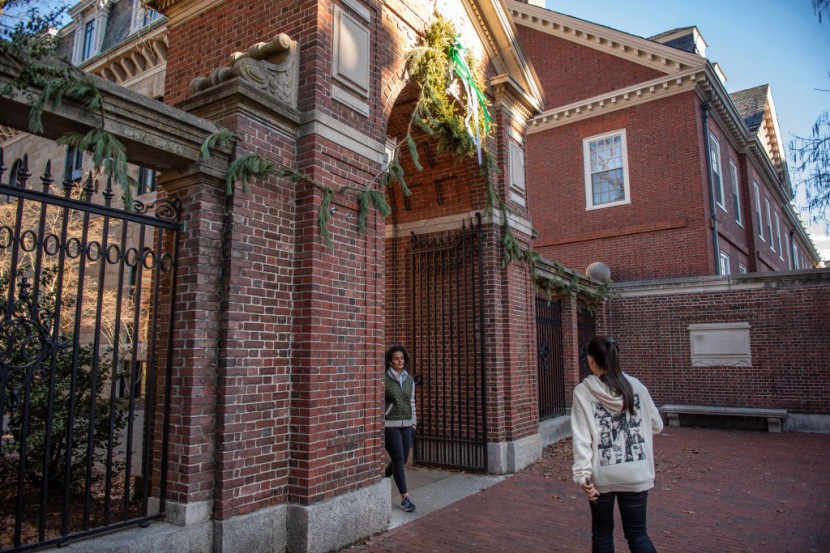
Harvard University locked most of the gates to Harvard Yard to prevent pro-Palestinian activists from establishing an encampment like the one that led to more than 100 arrests at Columbia University and a slew of other college campuses.
Access to the historic center of the Ivy League school will be restricted through Friday to students and staffers with university-issued identification, the student-run Harvard Crimson newspaper reported Sunday night.
Harvard Yard covers about 25 acres in Cambridge, Massachusetts, and is surrounded by fences with 27 named gates.
But a sign announcing its closure said only five could be used to enter or exit until further notice.
The sign also warned that tents and tables "are not permitted in the Yard without prior permission" and that blocking pathways or building entrances was prohibited.
"Students violating these policies are subject to disciplinary action," it added.
The moves are intended "to stay ahead of potential issues with non-Harvard recognized groups," a Harvard College spokesperson said in a statement to the Crimson.
An email sent to students and staffers also reportedly said officials were acting out of "an abundance of caution and with the safety of our community as a priority."
Nearly 50 people were arrested Monday morning when Yale police officers broke up the encampment on the campus in New Haven, Connecticut.
Harvard Yard is home to most freshman dormitories, several libraries, Memorial Church and various teaching halls, department buildings and administration offices.
On Friday, more than 200 people rallied there to demand that the university "disclose and divest" from Israeli companies and investments in the West Bank, according to the Crimson.
In January, Harvard President Claudine Gay resigned after just six months, following harsh criticism of her congressional testimony about the university's response to antisemitism on campus.
Gay, who remains a faculty member, also faced allegations of plagiarism in her PhD dissertation and scholarly work.
On Thursday, New York City police officers arrested more than 100 protesters who were camped out on Columbia University's South Lawn in Manhattan's Morningside Heights neighborhood.
The arrests sparked students to establish similar encampments at other schools including Yale University, the Massachusetts Institute of Technology and New York University.
© 2026 HNGN, All rights reserved. Do not reproduce without permission.








